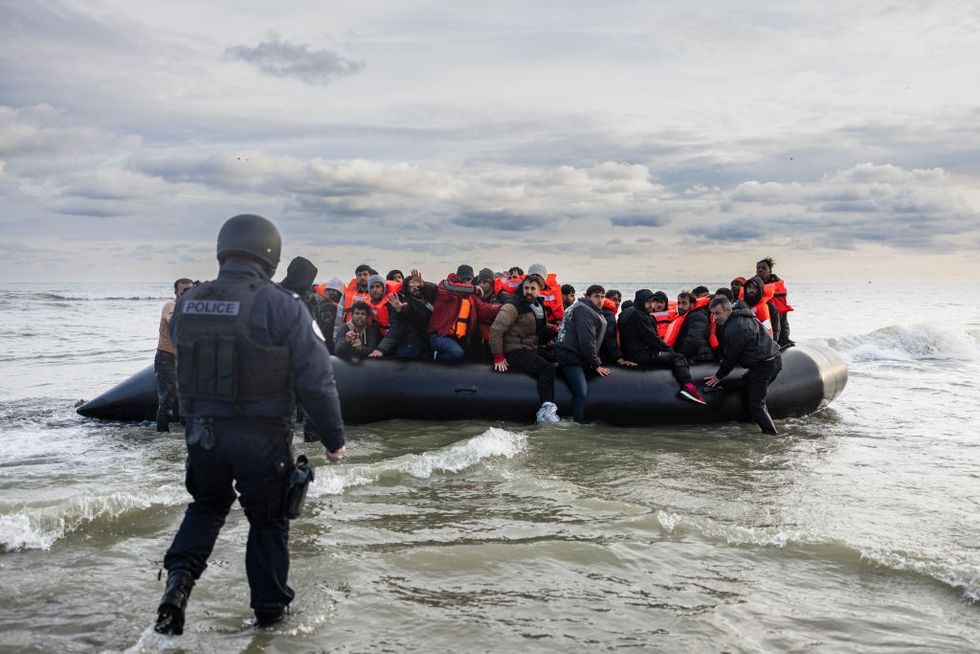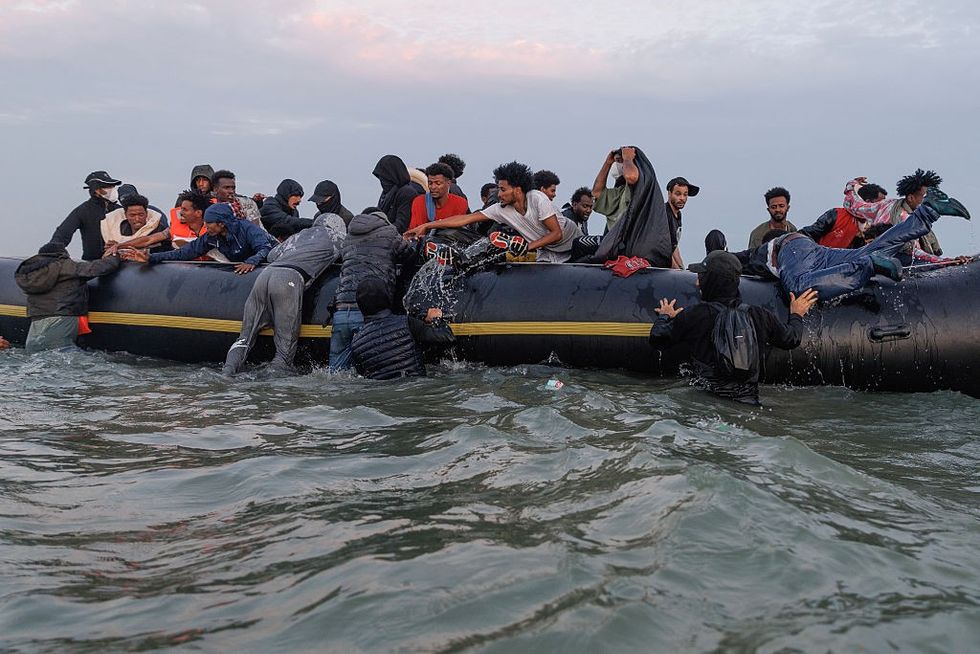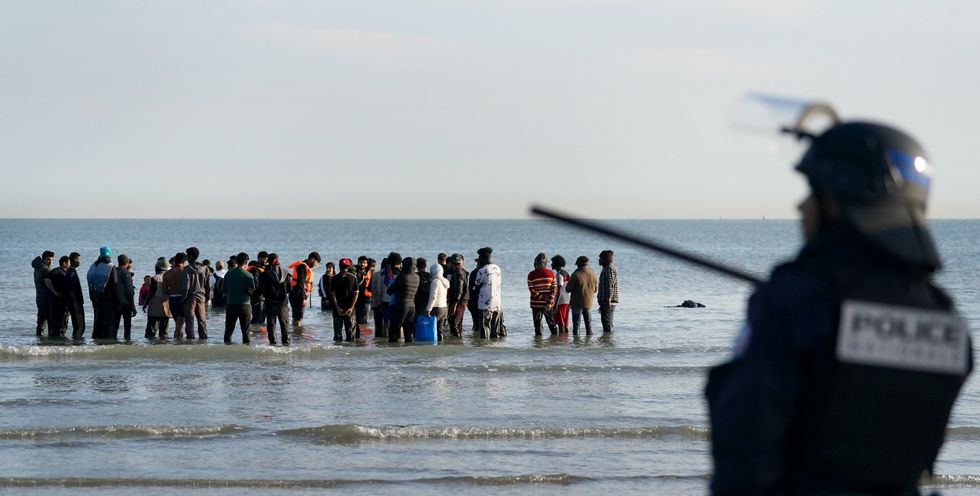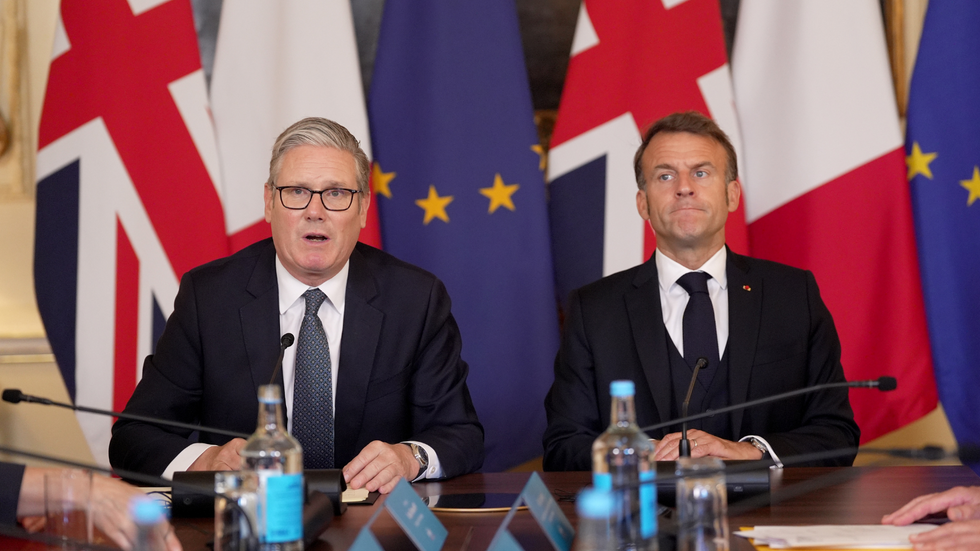French border police given new powers to arrest migrants who enter country illegally

Andrew Pierce criticises French police suddenly slashing migrant boats attempting to cross the Channel just ahead of Macron's state visit to the UK |
GB NEWS

Over 22,00 migrants have successfully crossed the Channel into Britain this year
Don't Miss
Most Read
Trending on GB News
French border police have been given new powers to arrest migrants who enter the country illegally in a nationwide crackdown.
Bruno Retailleau, the interior minister, is attempting to push through legislation which would allow French courts to prosecute migrants for “illegal stays” in France.
He argues the rule will act as a deterrent and enable police to seize the mobile phones of migrants to help identify people smugglers, arrest and prosecute them.
The EU previously pressured the French Government to abolish the law in 2012 amid continental concerns that offenders would return to their home countries.
Under current French law, police cannot arrest and detain migrants simply for illegally entering the country.
In order to make an arrest, authorities need evidence that the illegal migrants have committed a separate criminal offence.
France has been facing growing criticism from within Britain for what politicians and the public have dubbed as a failure to stop migrants from leaving France and travelling to the shores of Britain by small boat.
Under current French guidelines, officers can stop boats leaving the beach by puncturing them, but are not allowed to wade out unless migrants call for help.
LATEST DEVELOPMENTS:

French border police have been given new powers to arrest migrants who enter the country illegally in a nationwide crackdown
|GETTY
The French Government is preparing to change laws so police can stop boats in the sea for the very first time, enabling officers to use their vessels in shallow waters to intercept dinghies provided that they are within 300 metres of the shore.
Footage, filmed at the beginning of July, appeared to show officers slashing inflatable dinghies in shallow waters.
French security forces are also understood to be using jet skis to deploy nets in the sea that aim to jam the propeller of the small boats and bring them to a halt.
After preventing a crossing, authorities release migrants after intercepting their boats, enabling them to make repeated attempts to cross the Channel until they succeed.
 French police recently slashed a small boat, which was met with praise by the Government | GETTY
French police recently slashed a small boat, which was met with praise by the Government | GETTYStarmer has repeatedly vowed to "smash the gangs" since entering No 10 over a year ago.
He met with Emmanuel Macron, who promised to reduce the number of Channel crossings to Britain, during his state visit last week, where the pair made an "historic deal" allowing for a partial return of small boat migrants arriving in the UK.
The "one-in, one-out” scheme will allow Britain to send Channel migrants back to France in return for taking a similar number of asylum seekers from the country.
The British and French Governments have not yet put a figure on the number of migrants France will accept back, but it is expected to be very modest to begin with.
 French police watching migrants from the shore | PA
French police watching migrants from the shore | PAHome Secretary Yvette Cooper said she hoped the number of returns could be ramped up if the initial pilot is successful.
Speaking on the proposed new laws, a French interior ministry source told The Telegraph: "Where I think there will be quite a lot of agreement is on criminalising illegal residence. It is a matter of principle. When someone breaks into your home, it is a crime. When someone breaks into a country, it should be a crime.
"But it goes beyond symbolism. It’s simply a matter of investigation – we need to be able to search mobile phones. Why? Because when we look at mobile phones we find images that reveal links, for example with terrorism. This has happened to us several times in France.
"Above all, it allows us to trace, through images and a certain amount of data, the trajectory of illegal immigrants, their country of origin, their country of residence and their country of transit. So for us, the issue of illegal residence is not just a matter of principle or symbolism."
 Emmanuel Macron and Sir Keir Starmer announced a 'one in, one out' migrant deal between the UK and France | PA
Emmanuel Macron and Sir Keir Starmer announced a 'one in, one out' migrant deal between the UK and France | PAThe source added: "It will enable us to investigate more effectively in the future. That is why we are also asking for the search of mobile phones to be made possible if we want to be much more effective."
In the first 12 days of this month, 2,378 asylum seekers have arrived on UK shores, with 6,143 arrivals expected in July if current rates continue, according to the Telegraph's analysis.
This represents a dramatic surge compared to 2023, when 1,711 people arrived during the same 12-day period.
Overall, this year, 22,360 migrants have successfully crossed the Channel in inflatable dinghies, marking a 57 per cent increase from the 14,164 who made the journey during the same period in 2024.
More From GB News










